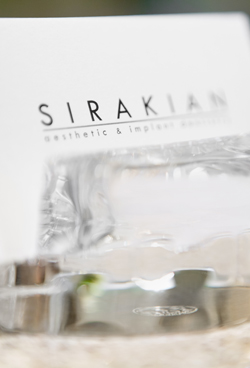
Many dentists recommend using mouthwash in combination with brushing and flossing for keeping fresh breath, preventing cavities, and fighting gingivitis. However, not all mouth rinses are created equal! There are plenty of factors to consider when buying mouthwash. Between the hundreds of brands, formulas, and even colors to choose from, which option is the best for you? We’re here to help you decide!
Cosmetic Mouthwash
These mouthwashes are primarily used to combat bad breath. They don’t tend to offer much in the way of protection from bacteria or infections, so if you want to use cosmetic mouthwash, it’s best to do so in the way you might use a breath mint—in conjunction with a stronger mouthwash that will provide more health benefits.
Alcohol Mouthwash
In addition to fighting bad breath, the antiseptic properties of alcohol have historically been known to rid the mouth of germs and help to curb viral infections. While alcohol-based rinses have long been an industry standard, they have fallen somewhat out of fashion in recent years due to a possible link with oral cancer. In addition to this potential risk factor, alcohol-based rinses tend to dry out the mouth, which is ultimately not ideal for your overall dental health. Should you still want to use an alcohol-based mouthwash, be warned: rinses with alcohol can also cause a burning sensation throughout your mouth.
Antibacterial Mouthwash
Antibacterial mouthwash is great for eliminating bad breath and preventing periodontal diseases. Depending on the brand, rinses will either employ antibacterial chemicals like cetylpyridinium or natural germ-fighters like witch hazel as the primary ingredient. Many popular antibacterial mouthwashes will include alcohol as well, so if you’ve chosen to avoid alcohol-based washes, check the label carefully!
Fluoride Mouthwash
If you feel as though your cavity count has you frequently sitting in the dental chair, your dentist will probably suggest a fluoride rinse. Fluoride rinses work to strengthen your enamel, which in turn defends your teeth against decay. While fluoride mouthwash will help ease fresh breath, it’s best not to ingest or overuse it. Swallowing or overuse of fluoride can put you at risk for fluorosis, or fluoride poisoning. If you find yourself wondering if you’re using your fluoride mouthwash too much, consult your local dentist for peace of mind!
Using mouthwash is a great step in keeping your breath fresh and your oral health on track. If you are unsure which type of mouth rinse will be best for you, feel free to contact us for more information on mouthwashes!








